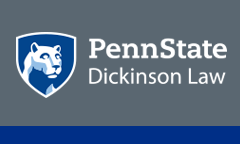Author ORCID iD
https://orcid.org/0000-0003-3603-2509
Document Type
Article
Publication Date
2022
Abstract
The audit profession has repeatedly failed in its obligation to accurately opine on financial statements prepared by companies that trade in U.S. markets. The list of entities that have contributed to the quest for effective regulation of these auditors is long; it includes the American Institute of Certified Public Accountants (AICPA), the U.S. Securities and Exchange Commission (SEC), Congress, outside directors of public companies, and the Public Company Accounting Oversight Board (PCAOB), a recent congressional creation. Yet, despite 50 years of effort, the formula for efficacious oversight of the audit profession remains elusive.
In 2020, then-president Donald Trump proposed to subsume the PCAOB into the SEC, citing regulatory duplication and budget savings. This proposal could have been summarily dismissed as fodder for a deregulatory political agenda, but reactions to the proposal from those outside the discrete enclave of securities regulators revealed deeper concerns about the state of auditor regulation that beg our attention.
This Article is the first in a series of planned articles exploring regulation theory as a path to answering the clamant question: What is the alchemy of effective auditor oversight? This Article begins the discussion by examining the methods by which regulators have determined which auditors would be subject to regulatory oversight, and the extent to which that process furthers the purported goals of more reliable audit reports. This Article establishes that regulatory processes to define the audience of regulated entities have been disinterested at best, and self-interested at worst. This Article articulates the need for a complete departure from the stale, recycled approaches that have been implemented under the guise of improved regulation. A fresh approach with a clear nexus to the objective of promoting fair and accurate audits of public company financial statements is imperative to advancing in the discovery of an efficacious formula for auditor oversight.
Publication Title
Lewis & Clark Law Review
Recommended Citation
Sarah Williams, The Alchemy of Effective Auditor Regulation, 25 Lewis & Clark. L. Rev. 1089 (2022).



Comments
First published by Lewis & Clark Law Review, Volume 25, Issue 4, available at http://law.lclark.edu/law_reviews/lewis_and_clark_law_review/